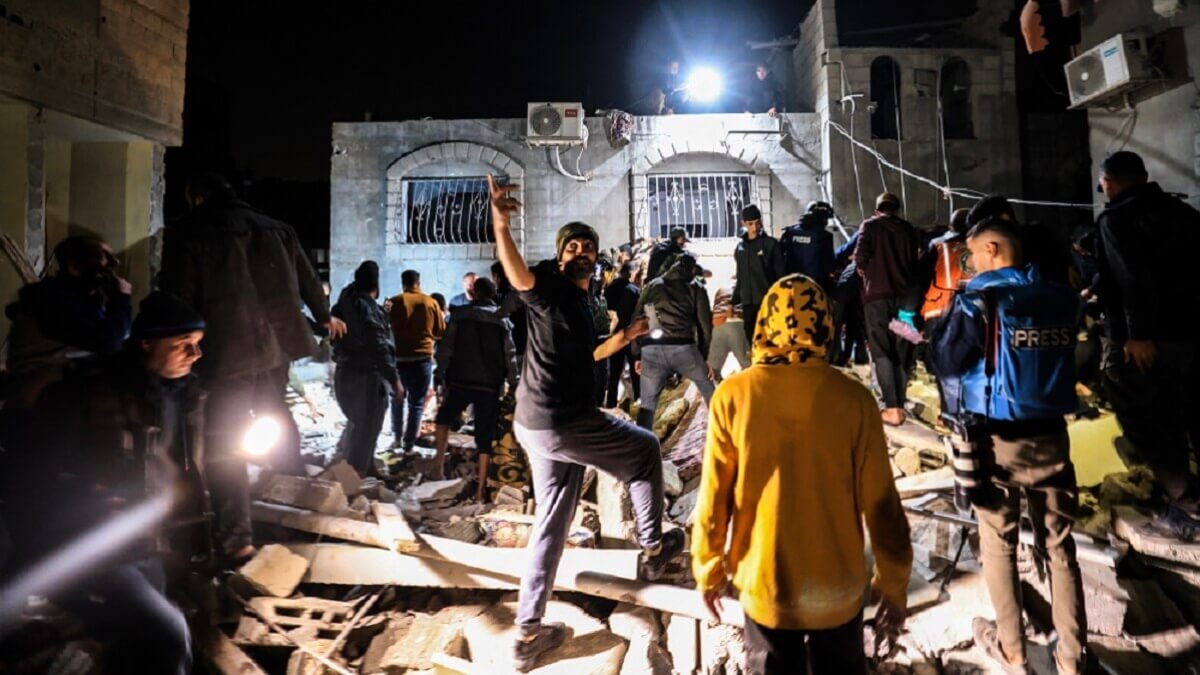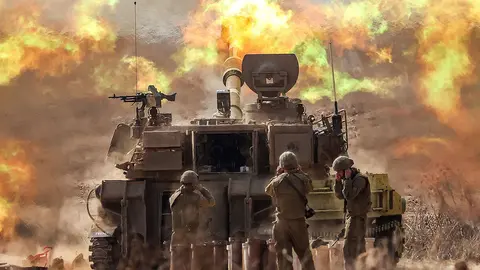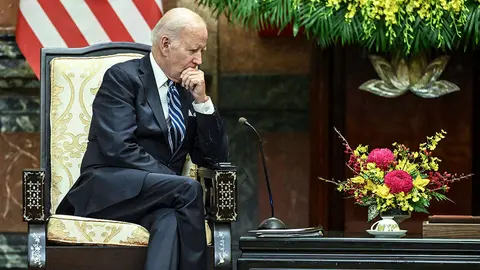Israel-Hamas war in Gaza marks five months with no truce in sight

The war between Israel and Hamas in the Gaza Strip, which has killed tens of thousands of people, entered its fifth month on Thursday without international mediators reaching a truce in the bombed-out Palestinian territory on the brink of famine.
The United States, Qatar and Egypt, meeting in Cairo since Sunday, had hoped to reach an agreement on a pause in the fighting before Ramadan, the holy month of fasting for Muslims, which begins early next week.
But the Islamist movement's delegation, which was taking part in the meetings, left Egypt, a senior official of the group announced on Thursday.
Israel's "initial responses" did "not respond to the minimum demands" made by the Islamist group, especially on a definitive ceasefire and a withdrawal of Israeli troops, said the leader, who requested anonymity.
Israel continues to bombard the Palestinian territory and, according to the Hamas government, 83 people have been killed in the last 24 hours.
The war erupted on 7 October following the Palestinian Islamist movement's unprecedented attack on Israeli soil, in which some 1,160 people, mostly civilians, were killed, according to an AFP count based on official Israeli data.
Israel vowed to "annihilate" Hamas, in power in Gaza since 2007, and launched a military campaign that has so far killed 30,800 people, mostly women and children, according to the latest toll from the territory's health ministry.

"Shame on civilisation"
In this meagre territory, completely besieged by Israel, some 2.2 million people, according to the UN, the vast majority of the population is on the verge of starvation. The situation is most serious in the north, where fighting and looting make it almost impossible for humanitarian aid to reach.
China on Thursday described the situation there as "a tragedy for humanity and a disgrace for civilisation".
"The international community must act urgently and make an immediate ceasefire and cessation of hostilities a top priority," Chinese Foreign Minister Wang Yi said.
Humanitarian aid, subject to Israeli authorisation, is trickling into the enclave from Egypt.
Israel's main ally, the United States, has stepped up pressure for a truce deal.
Negotiations launched on Sunday in Cairo, with representatives from the US, Egypt and Qatar, sought a six-week cessation of fighting in a deal that would include the release of hostages in exchange for the release of Palestinians held in Israel, as well as the entry of much more humanitarian aid.
According to Israel, 130 hostages are still being held in Gaza, 31 of them reportedly dead, out of some 250 people taken hostage on the day of the attacks.
But Hamas demands first and foremost a definitive ceasefire, the withdrawal of Israeli troops from Gaza, the reconstruction of the territory and the return of hundreds of thousands of displaced civilians.
Field of ruins
On the ground, fighting persists in the north, in Zeitun, a sector of Gaza City, and in the south, in Shuka, a town near Rafah, and in Khan Younis, according to witnesses.
Hamas officials reported that Israeli tanks left the centre of Khan Younis this week, leaving behind a field of ruins.
More than 1,500 houses and buildings were "destroyed or badly damaged", the Civil Defence said. Soldiers also devastated "all water, sewage, electricity, communications and road networks," they added.
The Israeli army shelled Rafah and the Hamad neighbourhood of Khan Younis more than 30 times, as well as the centre and north of the territory, the Hamas press service reported.
Israel announced that its army was "continuing its operations against terrorist infrastructure in Khan Younis and in the centre of the Gaza Strip".
To achieve "total victory", Israel said it was preparing a ground offensive in Rafah, a town on the southern edge of Gaza, along the closed Egyptian border. There, according to the UN, nearly 1.5 million Palestinians are crowded together in appalling conditions.

"Silent deaths"
At least 20 civilians, mostly children, have died from malnutrition and dehydration, according to the Hamas government.
"We believe that dozens of people are dying silently of starvation without having reached hospitals," said a Health Ministry spokesman.
"We can survive without food for several hours, but the children cannot," a volunteer, Bassam al-Hou, told AFP at a food distribution for displaced people in Jabaliya in northern Gaza.
"They die and faint in the streets because of hunger," he adds.
Faced with difficulties in delivering humanitarian aid by land, several countries, including the US, Jordan and France, have begun to airdrop food into the north of the territory, a solution considered insufficient and dangerous by NGOs.










